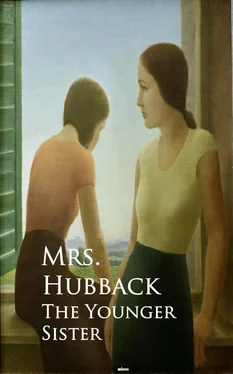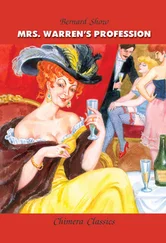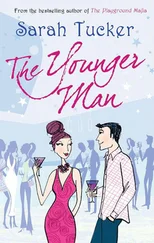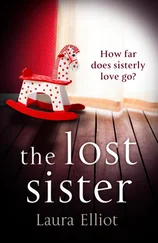1 ...6 7 8 10 11 12 ...30 Such was her ordinary mode of proceeding. In spite, however, of these delays, and the loss of time incurred, the preparations were at length complete; and Elizabeth having surveyed the dinner-table with much satisfaction, and wished, with a sigh, that they could keep a foot boy, returned to the drawing-room to wait the arrival of her visitors.
The happy moment shortly arrived, and with much noise and bustle Mr. and Mrs. Robert Watson, Margaret, and all their luggage were safely lodged in the family residence. Emma looked with much anxiety at both her unknown sisters, but at Mrs. Watson first, of course; indeed, few could have helped that, from the prominence which she assumed. She was a tall, showy-looking woman, with a high nose, a high colour, and very high feathers in her bonnet. She seemed much inclined to talk, and received Emma very cordially. Margaret was excessively affectionate in her manners, clung round her, called her "her dear new sister," her "darling Emma," pushed back the curls from her cheeks to kiss her, and spoke in the fondest, most caressing tone.
"Well you see, Elizabeth," said Mrs. Robert, "I have brought Margaret back; but she is a naughty girl, and I am much displeased with her, for I want to take her home again to Croydon on Saturday, and she says she will not go."
This was said as Mrs. Robert was stroking down her long fur tippet, and spreading out her hands at the fire, and concluded with a playful tap on Margaret's cheek.
"Ah, dear Jane," said Margaret, "you know how I like being with you, but indeed I cannot tear myself from sweet Emma immediately."
"Saturday!" cried Elizabeth; "you surely do not think of leaving us on Saturday! That will be only three days—only half a visit; you promised us a week."
"Did I?—no, sure I could not have done so: you know I cannot be so long from my little girl, and she would break her heart without me."
"I wish you could have brought her," said Elizabeth.
"Quite impossible, my dear child, for I never like to take her out without her own maid, and I know you could not give her a room to herself as she has been used to. I am excessively particular about her," she continued, turning to Emma, "too particular, perhaps, but it was the way we were brought up—so you must not blame me."
"Of course not," replied Emma; "for doing what you think right, who could?"
"I am sure," continued this anxious mother, in a tone of great complacency, "I don't know how the poor little darling will get on without me; she almost cried her eyes out when she found she was not coming in the chaise, and I was obliged to pretend I was only going to church, and should be home again very soon."
"Oh, sweet little darling!" cried Margaret; "I do so dote on that child—little angel!"
Just at this moment, the brother entered the room.
"I say, Jane," cried he, "that confounded band-box of yours is squeezed as flat as a pancake, and your new trunk is too wide to go up these wretched narrow stairs; so what you are to do I am sure I don't know—dress in the hall, I suppose."
"My band-box squeezed!" cried the lady, in dismay. "I have no doubt my caps are all ruined absolutely: what shall I do!—how could it happen to my band-box!"
"Do anything but bother me about it, that's all. Ah, Emma," holding out his hand to his sister, "how do you do. It's a good while since we met, isn't it? I suppose, Elizabeth, I may go up at once and see my father before dinner?"
Elizabeth assented, and the whole party seemed about to separate.
"I suppose, Elizabeth," said Margaret, in a tone whose sharpness jarred on Emma's ear and contrasted with the softness of her voice to herself, "there's no letter for me from Kew, is there? But I dare say if there were, you would not think of giving it to me for an hour."
Elizabeth assured her there was none, and then quitted the room, to accompany her sister-in-law, and assist her toilette.
"Well, Emma," said Margaret, resuming her fondling tone, "how do you like Winston? I am sure, but for one thing, I should never wish to see it again," looking down, and trying to blush as she spoke; "
one
attraction it has: have you seen any of the neighbours?—did you not go to the ball?—do tell me all about it!"
"I think we must go and dress for dinner, Margaret," said Emma.
"Well, you can tell me then, for I suppose," added she, in an injured tone, "you and I are to have one room—Elizabeth always takes care of herself, and will be sure to put you upon me."
"No," said Emma, "Elizabeth has agreed that I should share her room."
"Oh," said Margaret—then paused a moment—"well, I was in hopes
we
should have slept together—I am sure I shall love you so much, Emma."
"I am sure it will give me great pleasure if you do," replied her sister; "but Margaret, if I cannot be of use to you, I must go and get ready for dinner myself;" and she hastily escaped to her own room.
When Emma descended again, she found her brother alone in the drawing-room, leaning over the fire-place, looking at a number of the "Gentleman's Magazine," which, however, he tossed on the table when Emma approached.
"Well, Emma," said he, lifting his coat-tails, and turning his back to the fire, "so your aunt has thrown you off, and herself away, has she? A pretty mess she has made of it with her marriage. Upon my word, women are entirely unfit to be trusted with money in any shape, and there ought to be a law against old fools of widows marrying again. How our uncle could be such a confounded ass as to leave everything in her power, I can
not
conceive! Any one could have foreseen what has happened. I hope the young husband will plague her heart out—no doubt he will lead her a wretched life—she deserves it. But I think the old gentleman might have given you something—a thousand pounds or so would have done very well for you, and the rest would have been most particularly acceptable to me just now. There was an investment offered itself, a month or two ago, in which I could have, beyond a doubt, doubled five thousand pounds in a very short time, and it was particularly cutting to be obliged to let it pass me, because that old man had behaved so shabbily. Upon my life, it makes me quite angry when I think of it—and just to throw you back upon my father's hands, without a sixpence—a burden—a useless burden upon the family—what could he be thinking of!"
Emma was too much overcome by the many bitter feelings this speech raised, to be able to reply; and her brother, seeing her tears, said:
"Well, I did not mean to make you cry, Emma; there's no good in that—though I do not wonder that you should be mortified and disappointed too. Girls are nothing without money—no one can manage them but you shall come and try your luck at Croydon. Perhaps, with your face, and the idea that you have still expectations, you might get off our hands altogether. There was a young man at Croydon who was very near taking Margaret. I really believe, would have had her, if she had only a couple of thousand pounds, but you can but do your best, so there, don't cry."
Before Emma had time to do more than wipe her eyes, her sister-in-law entered the room very smart, and in high spirits, to find herself more handsomely dressed than either of the Miss Watsons. She was much discomposed, however, to find that her husband had not changed his coat, or dressed his hair.
"My dear Mr. Watson," cried she, "how comes this about? Don't you mean to make yourself tidy before dinner?"
"Do let me alone, Jane," said he, impatiently shaking off her hand; "I trust I am tidy enough for my wife and sisters."
"Oh! but do come up, for my sake, and put just a sprinkle of powder on your hair? I will do it in a moment for you. You really look quite undressed; upon my word, I am ashamed of you. Your coat all dirty, and quite unfit to be seen—do come."
Читать дальше












